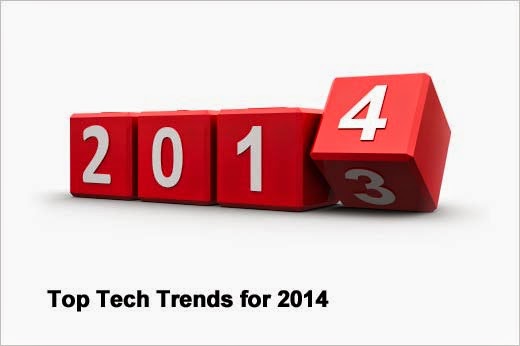In today’s world,IT leaders become much more
strategic, providing the rationale for the changes very rapidly. With this
background in mind, we have identifies the following ten technology trends for
the 2014 through 2016 by centering different researches
1. Digital convergence erodes boundaries
Physical and digital worlds are
converging. As anoutcome consumers anticipate uniform service whether they are
in the physical world in the digital world. The convergence of the business and
personal use of technology is also powering this trend.
2. Digital experience delivery
makes (or breaks) firms
Forrester marks the point that
“A great digital experience is no longer a nice-to-have; it’s a make-or-break
point for your business as we more fully enter the digital age.” The report
points to aincreasing number of firms that have chosen a mobile-first approach.
3. APIs become digital glue
It
has been drawn a comparison between service-oriented architecture (SOA) and
application platform interfaces (APIs). Alike the former, the latter
offers “open access to useful functionality through network-based services
using technologies that are readily accessible from a broad range of
programming environments.”
4. The business takes ownership
of process and intelligence
Forrester highlights that IT is
dropping its control over business intelligence platforms, tools, and
applications often due to IT’s incompetence to control at the increased pace of
the business. Additionally, mobility progressively becomes
anintentionaldomineering of the entire business greater levels of process and
data innovation should arise.
5. Firms shed yesterday’s data
limitations
Cheaper, more agile,
cooperative, and adaptive methods for analytics and data sharing are key. It
has been noted from the research that it is important to design “predictive
apps able to sense their environment and respond in real-time, anticipate user
action, and meet users in their moment of need.”
6. Sensors and devices draw ecosystems
together
The Internet-of-Things will
move from puff to certainty with the ubiquity of connectivity and explosion of
devices, and wearable computing will go from niche to wider use. This
will turn the traditional “spray-and-pray promotional campaigns” into marketing
to ecosystems that materializes as a result of these changes.
7. “Trust” and “identity” get a
rethink
The report suggests that trust
has been irreparably harmed as “it’s impossible to identify ‘trusted’
interfaces, many data breeches comes from trustworthy insiders, and the concept
of ‘trust’ doesn’t even apply to data packets.
8. Infrastructure takes on
engagement
The researchrecords that
leading companies are varying silo unified communications and associations,
mobile device management, and desktop computing to more proficientlysupply and
substitute employee engagement and innovation.
9. Firms learn from the cloud
and mobile
Many firms and companies have
cloud strategies and mobile strategies, but the report makes the point that the
profits of the cloud will be inadequate by the speed with which customary
applications are re-written to take benefit of cloud.
10. IT becomes an agile service
broker
It has been noted from the
research that “Today’s leading IT organizations are moving from aligned IT to
empowered business technology practices.”


No comments:
Post a Comment